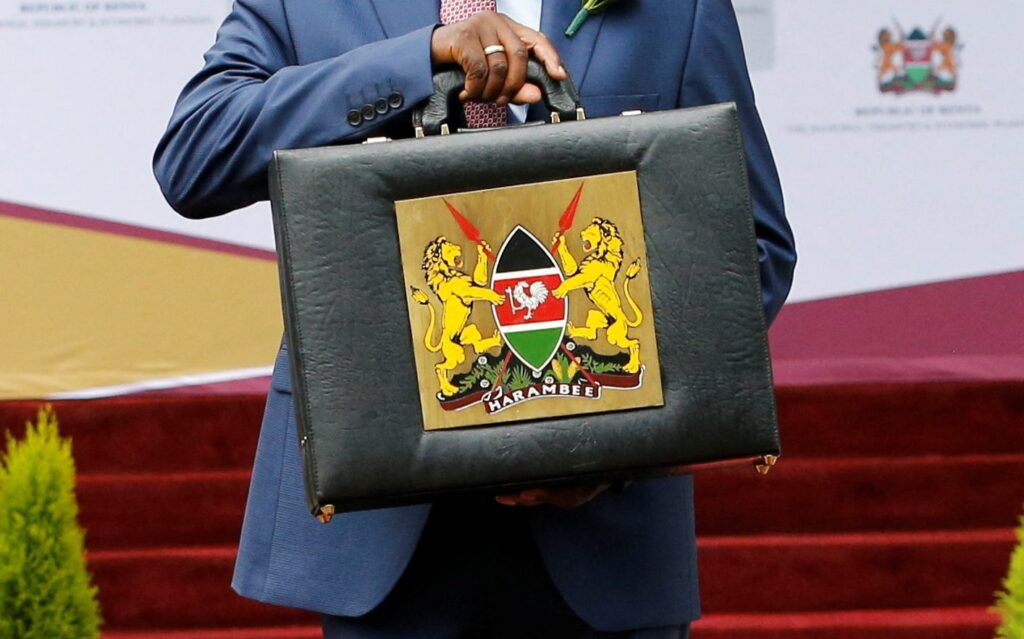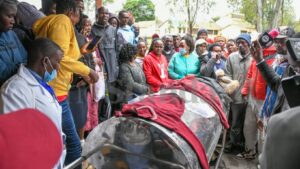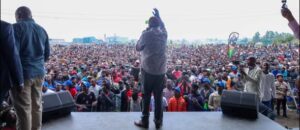Kenyans Brace for New Tax Burden Ahead of Budget Reading

A section of Kenyans express pessimism about the upcoming budget’s ability to address key economic concerns. Many hope the government prioritizes agriculture, business, stalled projects, and foreign debt management to ease the taxpayer’s burden.
Rift Valley: Traders Seek Relief
In the Rift Valley, traders hope the budget doesn’t add to their already heavy tax burden. Mohamed Noor, a businessman, highlights that high taxes hamper business growth. He urges the government to reduce taxes or implement measures to create a conducive business environment free of corruption and frustrations.
Kericho branch executive of the Kenya Union of Post Primary Education Teachers (KUPPET), Mary Rotich, stresses the need for adequate funds for hiring teachers. She points out that many schools are understaffed, and the government must address the teacher shortage in public schools across the country.
Western and Nyanza: Traders Anxious
In Western and Nyanza, anxiety grips traders ahead of the budget estimates for 2024/2025. In Busia, traders at Busia Soko Posta fear proposed levies by the Kenya Kwanza administration could bankrupt them. Wilmina Nafula, a vegetable vendor, urges the government to reduce levies on small and medium businesses to keep them afloat.
Erick Ouma, chairman of boda boda operators in Busia, worries about fuel costs. He notes that the budget must consider fuel prices, which significantly impact the cost of living. Many boda boda operators fear they might go out of business if fuel prices rise.
North Rift: Farmers’ Expectations
In the North Rift region, agricultural producers expect budget measures that lower production costs and boost agribusiness. Thomas Boen, a large-scale farmer from Uasin Gishu County, hopes Treasury CS Professor Njuguna Ndung’u allocates funds for purchasing the current season’s maize harvests.
Rift Valley Law Society of Kenya Chair Aston Muchela emphasizes the need for the budget to address Kenya’s high foreign debt. He demands clarity on whether the government plans to take more loans or rely on heavy taxation to manage the budget and debt.
Tom Nyagechanga, a Kenya National Farmers Federation (Kenaff) representative in Trans Nzoia, highlights the impact of high fuel and basic commodity costs on citizens. He urges parliamentarians to consider amending taxes to reduce the financial burden on citizens.
Joseph Sang, a farmer from Chepkanga in Uasin Gishu County, expects the budget to expand the agricultural subsidy program. He praises the fertilizer subsidy but calls for subsidized seeds and agrochemicals to address rising food production costs.
West Pokot: Development Hopes
In West Pokot, residents eagerly await budget decisions that will shape their economic and social landscape. They anticipate increased development, improved infrastructure, and enhanced social services. Mary Chepurai emphasizes the need for quality education, hoping the budget will prioritize investments in schools and educational resources in the marginalized county.
Infrastructure development, especially road construction and maintenance, remains a pressing issue for West Pokot residents. They hope the budget addresses these needs to improve connectivity and accessibility.
Mount Kenya: Coffee Industry Revival
In the Mount Kenya region, residents hope the government prioritizes reviving the coffee industry. They believe that boosting this sector could significantly impact the local economy and improve livelihoods.
Government’s Budget Priorities
Interviews with residents across counties reveal a common hope: Kenya Kwanza’s latest budget will be the economic breakthrough the country needs. Many believe that prioritizing debt management, agricultural support, and business-friendly policies will help lift the economy and reduce the burden on taxpayers.
Chief Government Pathologist Johansen Oduor assures that investigations and autopsies related to the Shakahola massacre are ongoing. Meanwhile, homicide detectives from the Directorate of Criminal Investigations (DCI) have identified 50 graves, focusing their efforts on areas with previously exhumed bodies.
The bodies are believed to be followers of controversial Pastor Paul Mackenzie of Good News International Church in Kilifi County. Mackenzie, arrested in April last year, faces multiple charges, including murder, manslaughter, and child torture.
Conclusion
As Kenyans brace for the new tax burden, they hope the budget will address their economic concerns and provide relief. The government must balance debt management, agricultural support, and business-friendly policies to ease the financial strain on citizens. The country awaits the budget reading with a mix of anxiety and hope, looking forward to measures that will drive economic growth and improve livelihoods.
More on the budget reading Learn about Kenya’s economic strategies Current agricultural policies Latest news on Kenya’s economy


